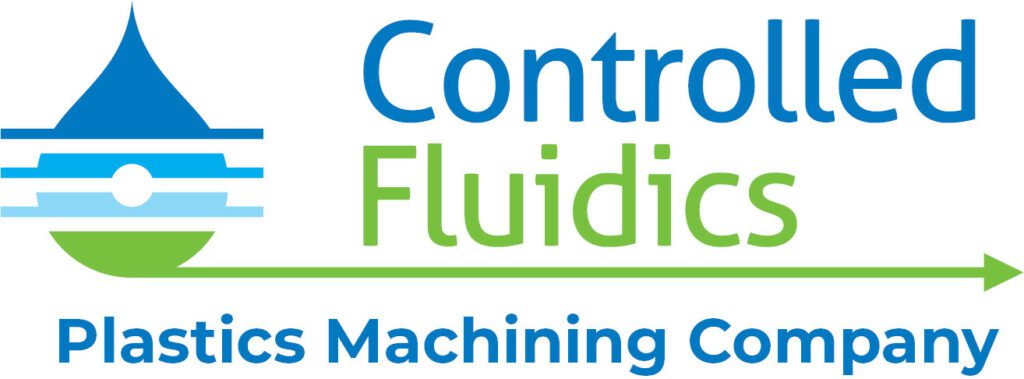Questions About Plastic CNC Machining
Your Questions on Plastic CNC Machining, Answered
Controlled Fluidics practices precision and excellence from quote to finished product. We use 5-axis CNC machines to produce customized plastic bonding and assembly work for each client. We maintain our place at the forefront of utilizing the newest technologies and practices for precision plastic machining and manifold fabrication.
Today, we will answer some basic questions on plastic CNC Machining.
What Plastic CNC Machining Services Do Controlled Fluidics Provide?
One of the main projects Controlled Fluidics works on using CNC machining is the production of bonded, drilled, and injection molded manifolds. Another is machined components with the closest tolerance possible. To produce these products, we use the latest state-of-the-art tools to perform these services:
- Plastic milling to fit every need, including optical finishes and deep hole drilling.
- Plastic turning with close tolerance and no burrs or air pockets.
- Plastic polishing with the highest clarity and a smooth finish.
- Micro machining at close tolerance at sub-millimeter scales.
- Optical machining with high impact resistance and minimal weight.
What Industries Does Controlled Fluidics Serve?
Every project comes with design support and prototype testing from our experts to ensure complete satisfaction with the end result. In addition, our CNC and plastic machining tools and processes are fine-tuned to meet the needs of various industries, such as:
- Diagnostic instrumentation tools. In medicine, these are used to detect health or disease vectors.
- Medical instruments used inside and outside of the body. These can be single-use or can be sterilized multiple times.
- Semiconductor components for solid state electrical conduction.
- Scientific tools used in the lab and the field, like measuring devices, syringes, and collection trays.
A machining business must display consistent efficiency, precision, and speed to meet and exceed clients’ needs. Controlled Fluidics is satisfied with nothing less.
What Materials Does Controlled Fluidics Use?
Controlled Fluidics provides expert support on choosing the right material for each client’s unique needs. These materials include:
- ABS. Strong, stiff, light, low cost, and impact resistant.
- Acrylic. Easy to machine, with high clarity, light transmission, and close tolerance.
- Polycarbonate. Good clarity, tough, with a high continuous use temperature.
- Radel. Hydro and thermal resistant and stress cracking resistant.
- Ultem. UV stable and FDA compliant with superior heat resistance.
- PEEK. Excellent chemical resistance. Abrasion resistant, low moisture absorption.
- LDPE. Flexible, stress resistant, and malleable.
- Tecadur. Radiation and chemical resistance, clarity, and durability.
This is only a partial list of the carefully chosen substances we use. Visit our website for the full list of our plastics options and detailed specs on their purposes and performance.
What Are the Limitations of CNC Machining?
Every day we work to reduce the limitations of the current CNC equipment available. We tackle challenges like these:
- Complicated shaping and measurements.
- Extremely tight tolerances.
- Reactive and/or unstable materials.
We want to conquer every challenge presented by the difficulties of CNC machining and plastic machining. Even tolerances to .0002 are successfully met. Contact us to discuss your project.
